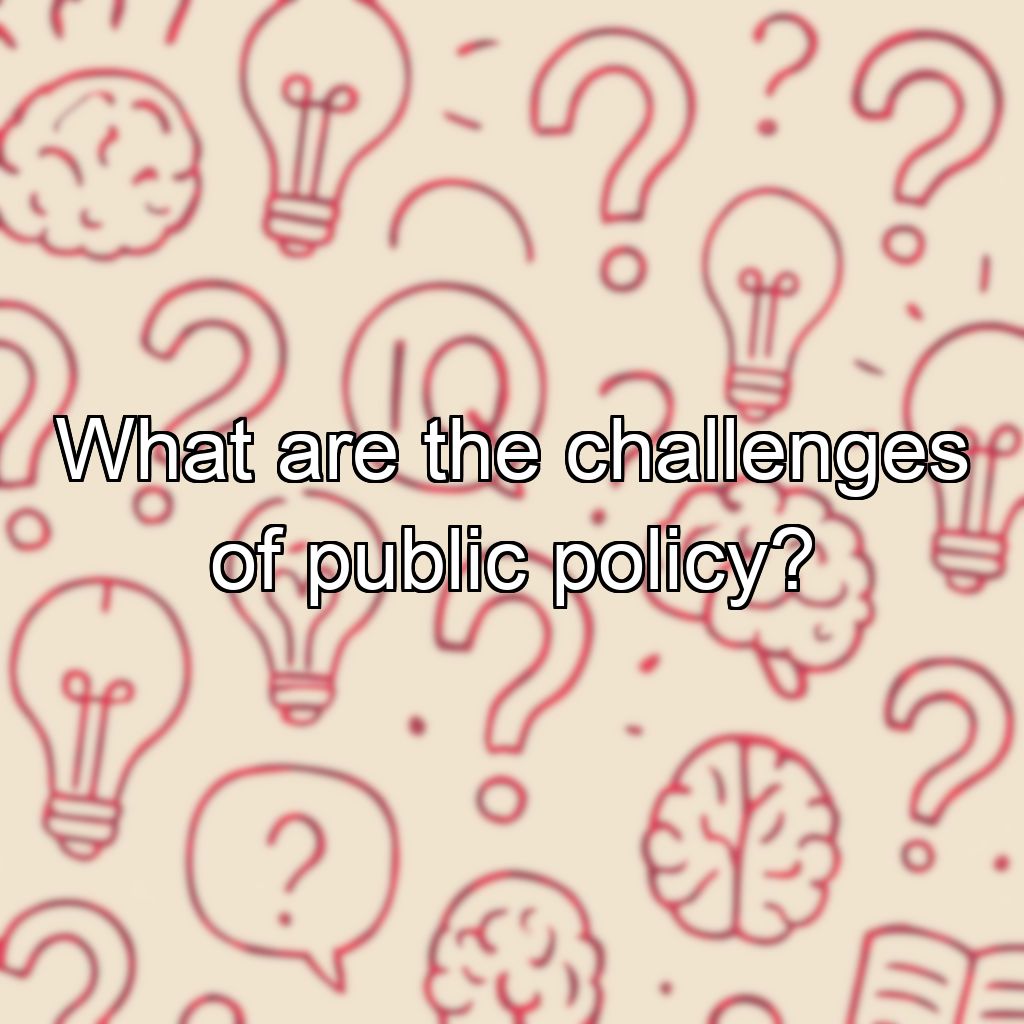What are the challenges of public policy?

Challenges of Public Policy
Introduction
Public policy development and implementation face numerous challenges that can impact their effectiveness and success. These challenges arise from various social, economic, political, and institutional factors.
Major Challenges
- Complexity of Issues: Public policies often address complex societal problems that have multiple causes and effects, making it difficult to craft effective solutions.
- Stakeholder Diversity: Balancing the interests and priorities of diverse stakeholders, including government agencies, private sector, civil society, and the public, can be challenging.
- Political Opposition: Policies may face resistance from political parties, interest groups, or opposition factions that have different agendas or ideological perspectives.
- Resource Limitations: Limited financial, human, and technical resources can hinder policy development, implementation, and evaluation.
- Implementation Gaps: Translating policy decisions into effective action can be hindered by bureaucratic hurdles, lack of coordination, or insufficient capacity.
- Legal and Institutional Barriers: Existing laws, regulations, and institutional structures may restrict policy options or complicate execution.
- Public Support and Perception: Gaining and maintaining public support is crucial, yet policies may be misunderstood or opposed by the public.
- Unintended Consequences: Policies may produce unforeseen side effects that undermine their original objectives.
- Changing Contexts: Economic fluctuations, technological advancements, and social shifts can alter policy relevance and effectiveness over time.
Conclusion
Addressing these challenges requires strategic planning, inclusive dialogue, adaptive management, and continuous evaluation to ensure that public policies meet societal needs effectively.